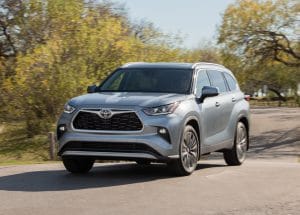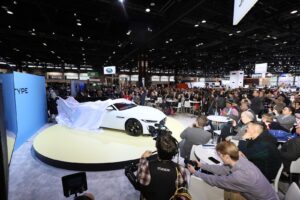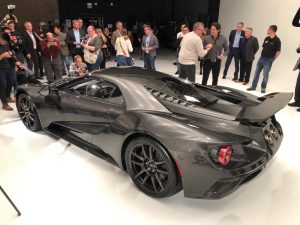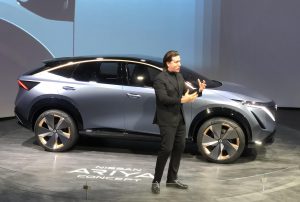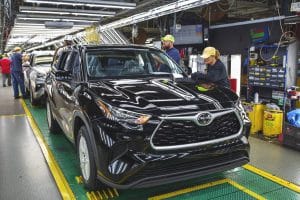
Toyota is moving production of the Sequoia to Texas and bringing two new three-row SUVs to its Indiana plant.
Toyota Motor will add two new, three-row SUVs to its already large line-up of sport-utility vehicles, the automaker announced.
Though Toyota revealed only a few details, it indicated one of the new models will be sold through the Toyota division, the other through Lexus. To bring them online, meanwhile, the Japanese giant plans to invest $803 million to upgrade its plant in Princeton, Indiana.
Since it was opened in 1998, Toyota has spent $6.6 billion on the Princeton factory, known as TMMI. It currently produces three Toyota-branded light trucks, the full-size Sequoia, the latest-generation Sienna minivan that is produced solely as a hybrid, and the Highlander SUV which is produced both in hybrid and conventional gas versions.
The plant soon will have a bit more space available, even without the upgrade. Production of the Sequoia model will be transferred to Toyota’s San Antonio plant in 2022. That’s part of a broader shift in its manufacturing footprint coinciding with the launch of a new Alabama factory that will operate as a joint venture with Mazda.
New SUVs will target growing families
The new models going into TMMI will be “designed with the active Gen Y American family in mind,” Toyota officials said, meaning they will be offered with three rows and seating for up to eight. Today, the flagship brand offers four different three-row SUVs, the Highlander, 4Runner, Land Cruiser and Sequoia. Lexus offers three rows in its LX, GX and RX utility vehicles.
Both new models will be “electrified,” though Toyota did not say whether that means conventional hybrids, like the Highlander, or more advanced plug-in hybrids like the RAV4 Prime. Neither of the new models is expected to offer an all-electric drivetrain, though the automaker announced in February plans to introduce three battery-electric vehicles for the U.S. market by mid-decade. At that point, Toyota previously said, it expects to offer electrified options for virtually every product in its line-up.
“This investment and new vehicle lineup will allow us to continue our work with electrification, expand our portfolio to about 70 models globally by 2025, and meet the needs of our customers while we accelerate toward carbon neutrality,” Ted Ogawa, CEO of Toyota Motor America, said in a statement.
Plenty of tech for Gen Y buyers
The new SUVs will use some of Toyota’s newest technologies, starting with a smartphone-as-key system allowing a motorist to operate it through an app, rather than a conventional keyfob.
The app also will allow the new models to park remotely, letting a driver exit before trying to squeeze the SUV into a tight space. And while it is unclear where the technology will first be used, the SUVs also will “allow for hands-free driving in certain conditions.” That sounds similar to semi-autonomous technologies now coming to market such as Tesla’s Autopilot, General Motors’ Super Cruise and the upcoming Ford Blue Cruise. Toyota has not offered details, such as whether it will charge a subscription fee as its competitors do.
Toyota has invested heavily in autonomous vehicle research and this week revealed it will buy the self-driving vehicle arm of ride-sharing service Lyft for $550 million.
The plans for the TMMI plant are expected to create another 1,400 jobs. This also will mark the first time a Lexus model will be built at the factory.
/**/

